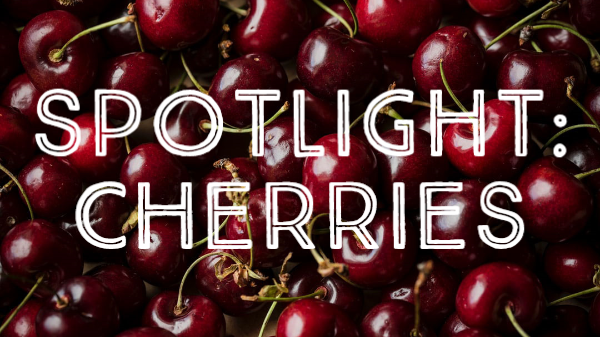Rising costs, for cherry growers, include shipping rates and tariffs.
“Cherries require careful handling and are moved by air, so they’re expensive to begin with,” says Craig Campbell, CEO of CDS Distributing, Inc. BB #:113987 in South San Francisco, CA.
Higher tariffs imposed by China have had a significant impact, and no one knows what the COVID-19 pandemic will do to international trade.
“Tariffs have been devastating to cherries because China has been a huge market for high-end fruit,” Campbell says. “The duty went from 10 to 60 percent.”
“We already have a high dollar,” says Mac Riggan, marketing director for Chelan Fresh Marketing BB #:170403 in Chelan, WA, “so the tariff makes cherries even more expensive overseas. The Chinese really value high-quality cherries, but now they’re buying less from U.S growers. Instead of 3 million boxes, they’ll buy a million to 1.2 million. They’ll just eat something else. The industry has an oversupply of cherries here, so we need to work harder to sell high-end cherries to other markets.”
And while there are other countries interested in U.S. cherries, like South Korea, Japan, and Taiwan, Campbell says “they can’t make up for the loss of Chinese business.”
Other suppliers are reaping the rewards.
“Chile’s peak season is around the Chinese New Year, and 85 percent of the cherries grown in Chile wind up in China,” Campbell says. “The fact that there is such a high duty on American cherries and none on Chilean fruit has been a gamechanger for them and led to expansion.”
Mike Preacher, director of marketing and customer relations at Domex Superfresh Growers, LLC BB #:113721 in Yakima, WA, said spring offers hope: “There are signs that heading into summer, there’ll be open market access. We see some softening of the tariff and keep an eye on it every week.”
TRANSPORTATION
When it comes to getting precious cargo like cherries from Point A to Point B, there are difficulties as well.
Scott Murphy, president of Northwest Brokerage Services, Inc. BB #:166336 in Yakima, WA, believes trucking in the Northwest has changed dramatically, and not in a good way. “Many shippers and receivers are bypassing brokers and going directly to carriers. The service we provide ensures that different carriers have proper documentation and training for transporting product.
“There needs to be a shift back to loyalty in this business; everyone’s in survival mode, cutting out as much as they can,” he observes. “We have some customers that still use us, even though they have their own logistics companies—either because of our long-term relationships or because their logistics company can’t handle the volume during the busy seasons when there’s a truck shortage.
“What’s frustrating,” Murphy continues, “is that I’ve cultivated those relationships for decades—I have more friends than customers.”
And it’s not limited to the produce or perishables industry. “I see it in all industries now,” he says, but thinks reliance on brokers and their skillset will “come back eventually and there’ll be a place for all of us in this industry.”
This is a multi-part feature adapted from the Cherries Spotlight of the March/April 2020 issue of Produce Blueprints.



